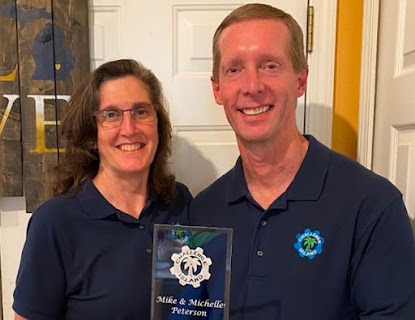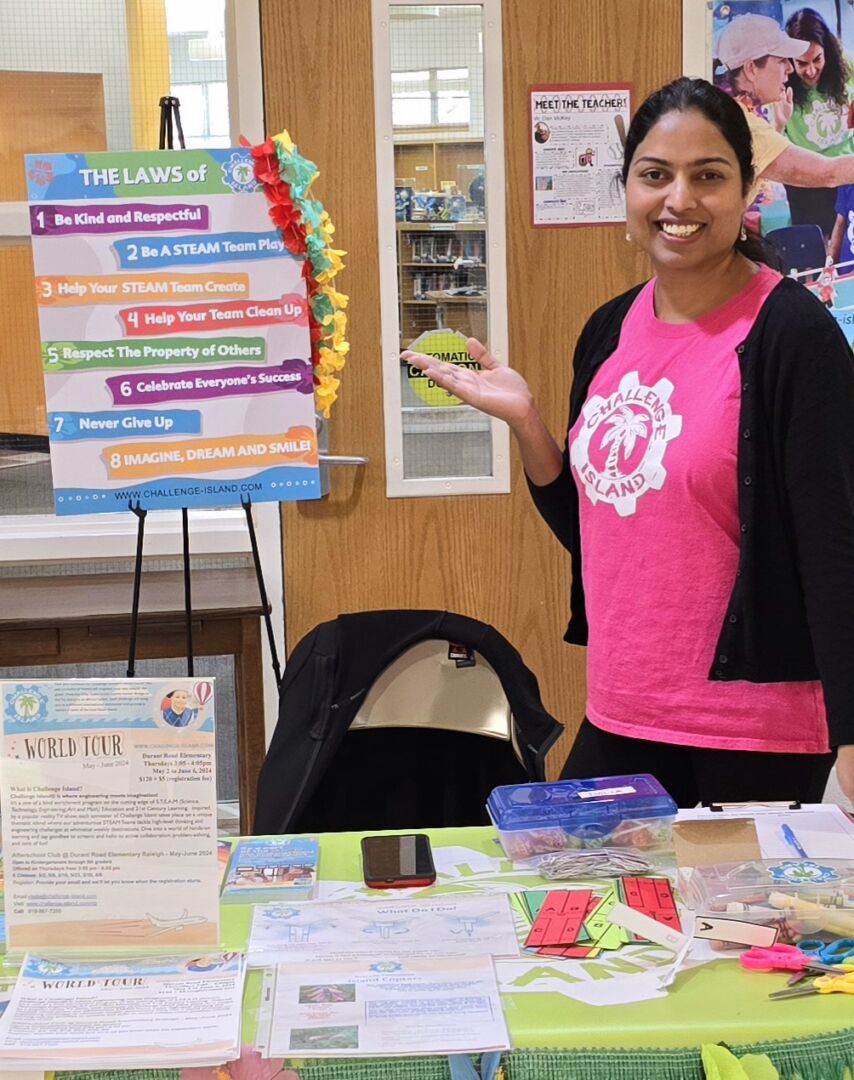
Mike and Michelle Peterson are the proud owners of a Challenge Island franchise in Oakland County, Michigan. Challenge Island is an award-winning educational program that specializes in the STEAM and STEM curriculums. Their entrepreneurial journey is nothing short of an inspirational story, which is why FranNet of Michigan chose to feature them as part of our ongoing series of client success stories. Assisted by FranNet Consultant Mark Cory, they were able to turn their entrepreneurial dreams into reality. Below, in his own words, Mike shares the details of their personal journey – from 30 years at General Motors to entrepreneurial ownership of their very own Challenge Island franchise…
Background
“I earned an undergraduate degree in electrical engineering, then went on to finish my MBA and my wife’s background is in industrial design. I worked for General Motors (GM) for several decades, handling various manufacturing assignments, as well as being involved in strategic planning. We’ve been married since 1994 and have three grown children, all of whom also went into engineering at the University of Michigan. So, I guess the apples don’t really fall too far from the tree after all when it comes to passion for STEM.”
On Becoming an Entrepreneur
“I’m not really one of those people who can say they always wanted to own a business of their own, but rather circumstances dictated the opportunity. A few years back, GM was offering buyouts for their more senior employees and my wife, and I saw it as possibly our last chance to cash out and do something different. Neither of us were sure what that something was going to look like, but we took the proverbial leap of faith. Part of the GM buyout option includes comprehensive outplacement services, which is how we came to know Mark Cory at FranNet. After meeting with him and discussing our background, we found out some interesting things. Both of us have always been heavily involved and passionate about working with kids. With three active children of our own, we participated in Scouting and community based educational programs, even some robotics competitions over the years and truly loved it. Mark explained how there were dozens and dozens of franchises that support children’s education and development, and we were amazed – we had no idea they even existed.”
What Attracted You to the Challenge Island Business Opportunity?
“In all, I think Mark came back and had us review four or five different educational franchise opportunities. But what caught our attention with Challenge Island was the enthusiasm we felt from the founder and their executive team. Sharon Estroff created the business and Robin Bergeron is their chief development officer, both of whom we ended up speaking with multiple times. There was one particular Zoom call that lasted well over an hour and a half, leaving us wondering how they had that kind of time to afford us amidst their other responsibilities. It was the same when speaking with the other franchisees in the network – they were all so helpful. We were also impressed with Challenge Island’s curriculum and the accompanying teaching materials. We felt like they really knew how to make the STEAM and STEM programs interesting and fun for kids. And there was also a very heavy teamwork component to it. Based on our experiences working with children, that’s a big deal. Challenge Island had a way of bringing the students together during workshops, brainstorming sessions, and other educational programming, while still making it a fun experience for them.”
Tell Us About Your Experience Getting Started
“All in all, it was about a six-month process to become official franchisees, and we signed our agreement in June 2019. Obviously, it takes some lead time to get your classes put together and recruit the participating students. By the fall of that year, we had several programs in place in multiple communities and we kept picking up steam over the winter months. Then, of course, came February 2020 and Covid hit. It was worrying because we just felt stuck. But we were both relieved and amazed at how quickly the leadership at Challenge Island came together to address the restrictions we now faced. Just like that, everything transitioned to virtual learning via Zoom call sessions. We adapted as well, going out to get the supplies we needed for our class curriculums, putting the kits together at home, then delivering them to the front porches of our students. We’d then jump on our scheduled call and tell the students to unpack their boxes labeled ‘Week 1.’ And it worked! By that summer, we had one particular program that included children from 10 different states. From a territorial perspective, Challenge Island franchisees don’t compete directly with one another. Certain permissions are secured ahead of time and there’s a lot of cooperation that goes on behind the scenes. Challenge Island’s HQ is very instrumental in keeping us working closely together and the back-and-forth communication.”
Where Do You Stand Today?
“I think it’s safe to say that everything has returned back to normal operations – we’re back to face-to-face classes again. As of this month, we’ve just completed 27 different summer camps in and around the Detroit area – 10 communities in all and we had a total of 14 employees involved who worked to make it happen. Looking back, we reached our breakeven point in the third year and we’re in our sixth year now, with good profitability.”
How Things are Going
“As of right now, we’re going to keep on keeping on. We’re on a 10-year commitment with Challenge Island and we hope to keep growing what’s become a very successful business for us. Once we reach that point, we’ll be fairly close to retirement, and we’ll have to assess our options at that point. We may sell and move on to something else or decide to stick. But everything is really going well right now. We really do enjoy the community of Challenge Island owners, and we have no complaints.”


